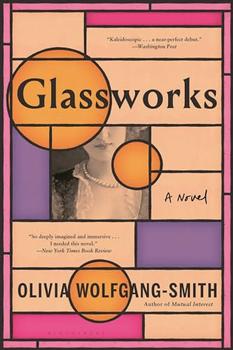Summary | Excerpt | Reading Guide | Reviews | Beyond the Book | Readalikes | Genres & Themes | Author Bio

Of course the past still shaped them, though. Every dollar spent, or metastasizing in investment, proved that much. It pleased Agnes, to be a woman at the fortune's helm once more. She sometimes imagined Prudence and Elizabeth similarly pleased by her ventures, her donations. Her caretaking of their legacy. At times it was as if the fortune were a live beast, gentling to her at the memory of the delicate hands that had tended it in its infancy. It rewarded her for her labors—not only materially, but with a priceless species of influence that carried her through closed doors. She had negotiated an education well beyond the standard for her sex, her women's annex degree countersigned by the university's president—"equivalent in all respects," he'd begrudgingly conceded, to the men's. Now, her financial support had earned her—equally begrudgingly—what she could not win through a true career in academe: an honorary place on the board of the university itself. However ceremonial the position, she was a trustee—she sat at the table and directed the allocation of her donations; she signed her name on university letterhead. Agnes saw herself as a balancing counterweight to the distinguished professors who traipsed across the neighborhood to duplicate their lectures in the cramped classrooms of the women's college. Her life's work was to widen this path to a two-way street.
Naturally the money had for the most part not passed matrilineally. But Agnes had learned enough, even with the missives of history burned to ash, to know women could be dragons.
It was a responsibility as well as a power, Prudence and Elizabeth's fortune. Agnes feared that vanishingly distant cousins and their gambling-house addictions would never be completely exterminated from her drawing room, where they appeared cyclically with hats in hands. But by the same token, there would also never be a fruit or fabric, an atlas or academic or work of art, she could not eventually summon to her door.
The case of the glass modeler was a simple one. The university needed lifelike botanical and invertebrate specimens that could be permanently displayed, so that undergraduates might study species rendered inaccessible by season or geography. Additional models, the faculty hoped, would accompany these and magnify nature's more minute details—mold spores, coral polyps, flowers' ovaries in cross section—to scale and in three dimensions. There was, apparently, one gentleman living who could supply such models. Agnes could supply the gentleman.
It began as detective work. She applied to the patrons and boards of museums in New York and in Europe, writing on university letterhead and signing with her initials to escape potential prejudice. There was almost exclusively one name recommended for botanical and zoological models, one name breathlessly repeated—a gyre of whispered expertise centering on Bohemia. Monsieur Novak. Novak of Prague. Mr. Ignác Novak. But the models were impossibly delicate glass, the curators warned; several had broken when shipped only a few dozen miles overland from his studio. He would, almost certainly, have to be kept in residence.
Agnes applied herself to the task, writing to Novak and introducing herself as the head of an exploratory committee seeking to engage a glass modeler. She did not mention that she was the single donor who would fund the position, nor that she was a woman.
Novak resisted at first, in kind but demurring letters. It was too far; the term of employment too long to be fixed in one place so far from his studio. He deprecated himself amusingly. He was used to either the active bursts of sea voyages or his home base, he explained, not sustained international living. He had been exhausted by fieldwork and a recent bout of illness; finally ensconced in Prague, he planned to remain there for the next three years at least. "I am a fussy and stupid creature," he wrote, "and require a season of staring at my same friendly stand of trees before I am ready for onward travel." Agnes was not fooled. She had by this point seen slides of his studio—a modern suburban building; electric tram lines dissecting the sky. He was not the Slavic gnome he pretended to be, living in a fairy-tale cottage sprouted like a woodland mushroom. Agnes suspected he was being courted by the National Museum in Prague. Very well, she thought—so they were each holding a part of themselves in reserve.
Excerpted from Glassworks by Olivia Wolfgang-Smith. Copyright © 2023 by Olivia Wolfgang-Smith. Excerpted by permission of Bloomsbury USA. All rights reserved. No part of this excerpt may be reproduced or reprinted without permission in writing from the publisher.
Your guide toexceptional books
BookBrowse seeks out and recommends the best in contemporary fiction and nonfiction—books that not only engage and entertain but also deepen our understanding of ourselves and the world around us.